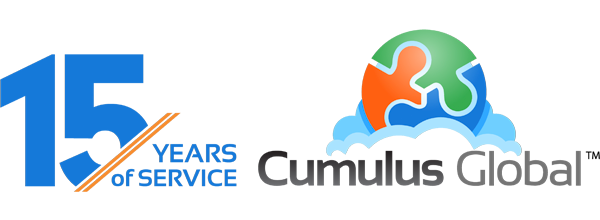Cloud Solutions Drive Rapid Growth for Cumulus Global

Cumulus Global today announced revenue growth exceeding 300% for 2012 as the company’s cloud solutions business continues to expand. Sales for 2012 surpassed $3.3 million dollars compared to $972,000 in 2011. Net income before taxes jumped over 400%, to more than $200,000 for 2012. This growth reflects increasing demand from Cumulus Global’s core small and mid-size business markets, as well as the company’s expansion into new market segments.
“In the last 18 months, we have helped more than 120 school districts migrate to Google Apps for Education, deploy Chromebooks for Education, and protect their networks and in-house data,” noted Allen Falcon, CEO and co-founder. “We see increasing opportunity in the educational market.”
The company also sees increasing demand from local, municipal, and county governments and agencies throughout New England and nationally. Falcon expects revenues from Google Apps for Government and related services to “more than triple over the next twelve to eighteen months.” Falcon attributes this growth to the migration, education, and support services offered, including the company’s participation in the FCC E-Rate program for schools and libraries.
Serving the needs of small and mid-size businesses, those with 1 to 1000 employees, remains a core market for Cumulus Global. According to Falcon, “Our core SMB market grew by more than 30% last year and we see that rate of growth accelerating.” Falcon attributes this growth to the company’s focus on solutions rather than technology.
“We do not sell hype or technology,” stated Falcon. “We work with our customers to identify if and how cloud solutions can improve efficiency, expand services, drive revenue, and lower costs. We bundle products and services that overcome challenges and enable growth.” Partnering with more than a dozen ISVs and solution providers, Cumulus Global can meet customers’ regulatory compliance, security, data management, and IT administration needs.
For companies, non-profits, government agencies, and schools interested in learning more, Cumulus Global conducts regular webcasts and Q&A sessions.

 Cumulus Global (
Cumulus Global (